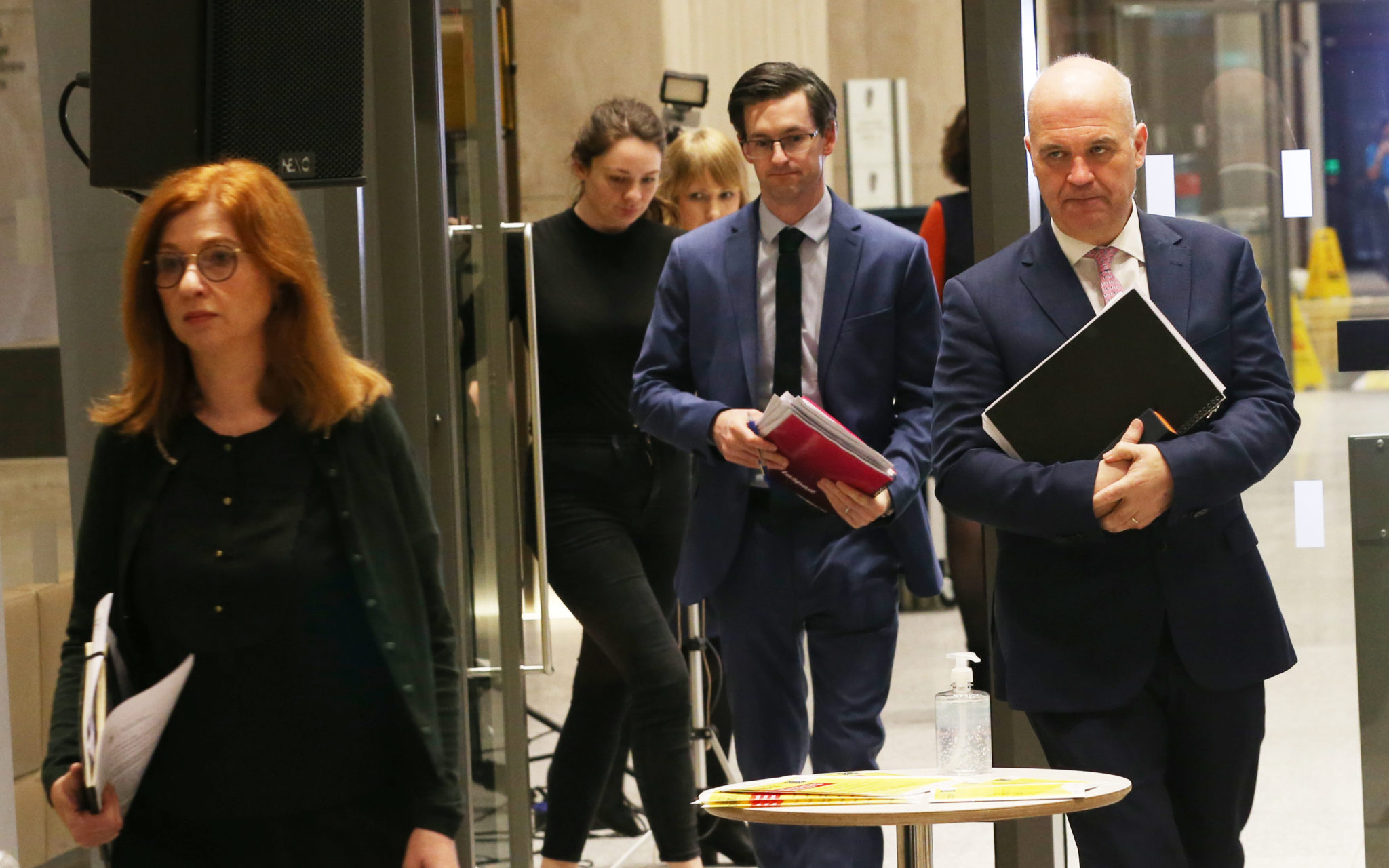COVID-19 testing may be increased at meat processing plants amid a rise of confirmed cases.
The Department of Health last night confirmed that there are now 10 clusters of the virus in plants across the country, involving 566 confirmed cases.
There are also 12 clusters, involving 149 patients, in Direct Provision Centres.
Speaking last night, the Deputy Chief Medical Officer Dr Ronan Glynn said 10 separate meat processors are dealing with outbreaks among staff.
“There is an outbreak control team in place for each of those clusters,” he said.
“But the HSE convened a national outbreak control team yesterday and they will be taking a range of actions to mitigate and prevent onward spread of that including the production of guidance for meat processing facilities around the country.”
He said the 149 cases in Direct Provision centres marks a rise of 61 since last week. HE said 12 of those cases have been hospitalised.
 Chief Medical Officer Dr Tony Holohan at the daily COVID-19 briefing at the Department of Health, 29-04-2020. Image: Sasko Lazarov/RollingNews
Chief Medical Officer Dr Tony Holohan at the daily COVID-19 briefing at the Department of Health, 29-04-2020. Image: Sasko Lazarov/RollingNewsThe Chief Medical Officer Dr Tony Holohan said the Health Protection Surveillance Centre was considering increasing testing in both areas to contain the clusters.
The death toll from the virus stands at 1,429, after Dr Holohan announced a further 27 deaths last night.
Meanwhile, 156 new cases have been confirmed, taking the national tally to 22,541.
This afternoon, the Health Minister Simon Harris said the number of people in intensive care had fallen further.
He said there are 76 COVID-19 patients in the country’s ICUs, down from 76 yesterday and 99 last Saturday.
Reduction in number of patients with #Covid19 in ICU in Irish hospitals today to 72. Down from 76 yesterday and 99 last Saturday. Good progress. We need to build on this trend & finish the job together. Thinking of the 72 patients & their families this morning. Stay the course
— Simon Harris TD (@SimonHarrisTD) May 9, 2020
On Newstalk Breakfast with Trish Laverty this morning, Professor Catherine Motherway, President of the Intensive Care Society Of Ireland said the country has to be extremely careful as it begin to ease lock-down restrictions.
“We need to know that we can actually find every case; that we have good surveillance," she said.
"We need to know that our health system can cope - can find the cases, isolate the cases and treat them.”
“We need to minimise outbreak risks, which we are still seeing in nursing homes and meat factories.
"We need to make sure that we can, when people go back to work, protect them wherever they are going and we need to make sure then that, when people are coming in to the country, that we can manage that risk.
“And last but not least, that our entire community are fully aware of the risks we face and they continue to observe whatever healthcare measures we think are appropriate - and there will be a dialogue between NPHET and the public.”
Coming up #NewstalkBreakfast – @TrishLaverty will be speaking to Dr Catherine Motherway, President of the Intensive Care Society of Ireland to discuss this week’s main #covid19 developments.#BKNT pic.twitter.com/owMq6cndVu
— Newstalk Breakfast (@BreakfastNT) May 9, 2020
She said there is a real concern over the potential for a second wave when restrictions are eased.
"We have seen what has happened in Asia," she said. "Thus far that seems to have gone well but they are quite a different population to us, so seeing what happens in Italy will help."
"Of course people have to remember that the second wave in terms of hospital admissions will be probably three weeks down the track and in terms of intensive care will be four or five weeks down the track so we need to be really slow."
 The CMO Dr Tony Holohan arrives for a COVID-19 briefing in the Department of Health, 07-05-2020. Image: Rory Walsh/Newstalk
The CMO Dr Tony Holohan arrives for a COVID-19 briefing in the Department of Health, 07-05-2020. Image: Rory Walsh/NewstalkDr Holohan said two thirds of people who have died with COVID-19 have been aged 80 years or older.
Over 45% of the those who have died were over the age of 85.
As of midnight on Wednesday, just over 29% of the country’s patients had been healthcare workers.
Some 57% were women and 43% were men.
A total of 2,915 (13%) of patients had been hospitalised with 373 taken to intensive care.
Dublin had the highest number of cases at 10,885 (49%), followed by Kildare with 1,312 cases (6%) and Cork with 1,199 cases (5%).









